Donna o madre? L’eterno dilemma.
La fotografia di Olga Steinpreis
Woman or Mother? The Eternal Dilemma.
The Photography of Olga Steinpreis
Il portfolio fotografico di Olga Steinpreis di cui vi parlerò è presentato dalla Fiaf (Federazione italiana associazioni fotografiche). Olga è di origine russa e vive a Freigericht.
Le sue immagini mi hanno colpita per la nitida rappresentazione di una maternità al limite del conflittuale. Sono cauta nel definirla tale, nonostante sia palese il dissidio che si è creato tra la donna e la madre.
La maternità conflittuale è ben definita dalla psicologia e non è scopo di questo articolo indagare questo fenomeno da un punto di vista professionale. Limitiamoci a osservare.
Preferisco perciò mantenere un margine di dubbio, cioè che si tratti di un disagio transitorio destinato a risolversi nel tempo; non voglio trarre conclusioni affrettate. Purtroppo il tempo che ci è dato è quello che viviamo nel presente, pertanto il malessere di Olga è attuale ed è di scarsa consolazione immaginare che in un futuro non lontano potrebbe cessare, come le auguriamo, senza grandi turbamenti irrisolti.
Fotografie fredde, minimali, autoritratti che illustrano momenti della giornata di Olga alle prese con le incombenze relative all’accudimento dei figli e della casa. Fa da sfondo il sogno di una realtà nella quale la donna non è subalterna alla madre; l’atmosfera onirica è sottolineata dalle luci smorzate degli ambienti e dei luoghi.
Una storia vecchia come il mondo. Nelle immagini non è presente un’altra figura di accudimento, che sia il padre, i nonni o una tata, Olga è sola con il suo immaginario di donna defraudata del soddisfacimento dei propri desideri che esulano dalle necessità del quotidiano.
Ancora oggi si dibatte sul tema: “se non sei madre non sei una vera donna” e, quali che siano le motivazioni che hanno spinto l’autrice a mettere al mondo tre figli, temo che questo falso concetto usato come monito, si radichi nel suo pensiero come accade per molte altre donne.
Vi risparmio l’ovvio: se le donne fossero aiutate senza costi aggiuntivi per il bilancio familiare – poche si possono permettere un aiuto a pagamento – se il modello di famiglia non fosse esclusivamente un nucleo chiuso, se le politiche di welfare familiare godessero di maggiori investimenti, ecc., molte donne del mondo occidentale vivrebbero con maggiore serenità la maternità, senza essere costrette a conciliare la donna e la madre, vissute come realtà antitetiche.
Impressionante è l’immagine che ritrae Olga come un abito appeso alla gruccia nell’armadio, allo stesso tempo una chiusura e un’assenza, segno di scarsa considerazione per se stessa, o forse una provocazione, l’autrice vuole indicarci come la società la considera, un ruolo al servizio della comunità familiare.
Un altro capitolo è quello della cura di sé: nemmeno nella vasca da bagno la donna è sola a godersi un momento di relax: un figlioletto è insieme a lei rubandole uno spazio di meritato godimento.
Lascio ora parlare Olga, un cenno del suo vissuto:
“Sono in maternità da nove anni, sono mamma di tre figli. La mia routine quotidiana sembra infinita e mi assorbe. Sto cercando di essere una buona madre per i miei figli per non dire che mi sono seppellita in libri che trattano di psicologia infantile. A volte mi sento addirittura come se stessi avendo successo, ma la maggior parte delle volte mi sento sopraffatta dalle faccende quotidiane e i miei sforzi per diventare una versione migliore di me stessa sembrano inutili. No, dovrei togliermi dalla testa questa immagine della “madre perfetta”! Non voglio essere perfetta. Voglio vivere una vita in cui i miei sentimenti, interessi e obiettivi contano. E ad un certo punto, ho un sogno.”
“I’ve had a dream è il titolo di questo lucido lavoro fotografico.
“ Sembra che se non scatto, quando i miei figli cresceranno e se ne andranno per vivere la loro vita, avrò una casa pulita e ordinata e il vuoto dentro”.
Questo vuoto dentro è il cuore del problema, la richiesta di aiuto di una madre, emblema di tutte le madri del mondo che rivendicano la propria esistenza di donne oltre la maternità, che non vogliono mettere in secondo piano il loro femminile, o essere considerate in subordine ai loro figli.
The photographic portfolio by Olga Steinpreis, which I will be discussing, is presented by the FIAF (Italian Federation of Photographic Associations). Olga is of Russian origins and lives in Freigericht.
Her images struck me with their clear depiction of motherhood bordering on conflict. I am cautious about defining it as such, even though the disharmony between womanhood and motherhood is evident.
Conflictual motherhood is well-defined in psychology, and it is not the purpose of this article to delve into this phenomenon professionally. Let’s just observe.
I prefer to maintain a margin of doubt, meaning that it may be a transient discomfort destined to resolve itself over time; I do not wish to jump to hasty conclusions. Unfortunately, the time we have is the one we live in the present, so Olga’s distress is current, and it is of little consolation to imagine that it might cease in the not-so-distant future, as we hope, without significant unresolved turmoil.
Cold, minimalist, self-portraits illustrate moments of Olga’s day as she deals with the responsibilities of caring for her children and her home. The dream of a reality in which women are not subordinate to mothers serves as the backdrop; the dreamy atmosphere is emphasized by the soft lighting of the surroundings and places.
A story as old as time itself. There is no other caregiving figure present in the images, whether it be the father, grandparents, or a nanny. Olga is alone with her imagination of a woman deprived of the fulfillment of her desires beyond the daily necessities.
Today, the debate still argues on the theme: “if you’re not a mother, you’re not a real woman,” and whatever motivations led Olga to bring three children into the world, I fear that this false concept used as a warning will take root in her thinking, as it does for many other women.
I do not want to state the obvious: if women were helped without additional costs to the family budget – few can afford paid help – if the family model were not exclusively a closed unit, if family welfare policies received greater investments, etc., many women in the Western world would experience motherhood with greater serenity, without being forced to reconcile womanhood and motherhood, seen as antithetical realities.
Impressive is the image that shows Olga as a dress hanging in the closet, simultaneously a closure and an absence, a sign of little regard for herself, or perhaps a provocation; the author wants to show us how society views her, as a role in service to the family community.
Another chapter is that of self-care: not even in the bathtub is the woman alone to enjoy a moment of recreation; a child is with her, stealing a space of well-deserved enjoyment.
I will now let Olga speak, a glimpse of her experience:
“I’ve been in motherhood for nine years, I’m a mother of three children. My daily routine seems endless and consumes me. I’m trying to be a good mother to my children, not to mention that I’ve red a lot of books about child psychology. Sometimes, I even feel like I’m succeeding, but most of the time, I feel overwhelmed by daily chores, and my efforts to become a better version of myself seem to fail. No, I should get this image of the ‘perfect mother’ out of my head! I don’t want to be perfect. I want to live a life where my feelings, interests, and goals matter. And at some point, I have a dream.”
“I’ve had a dream” is the title of this powerful photographic work.
“It seems that if I don’t capture moments, when my children grow up and move on to live their own lives, I will have a clean and tidy house and an emptiness inside.”
This emptiness inside is the heart of the problem, a mother’s plea for help, emblematic of all the mothers in the world who assert their existence as women beyond motherhood, who do not want to forget their femininity or be considered subordinate to their children.
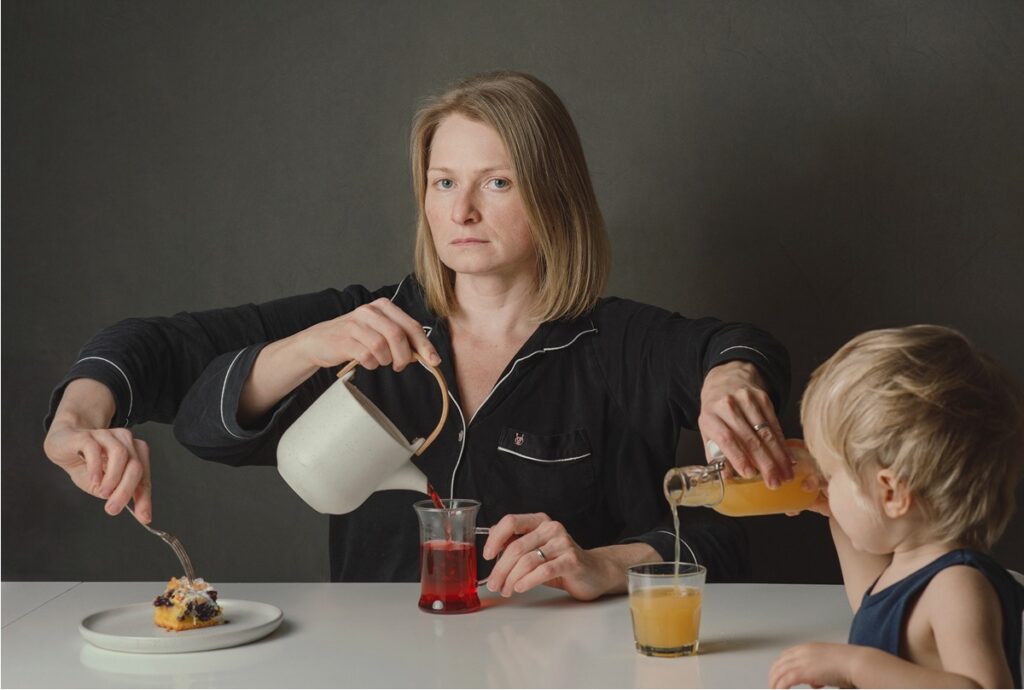

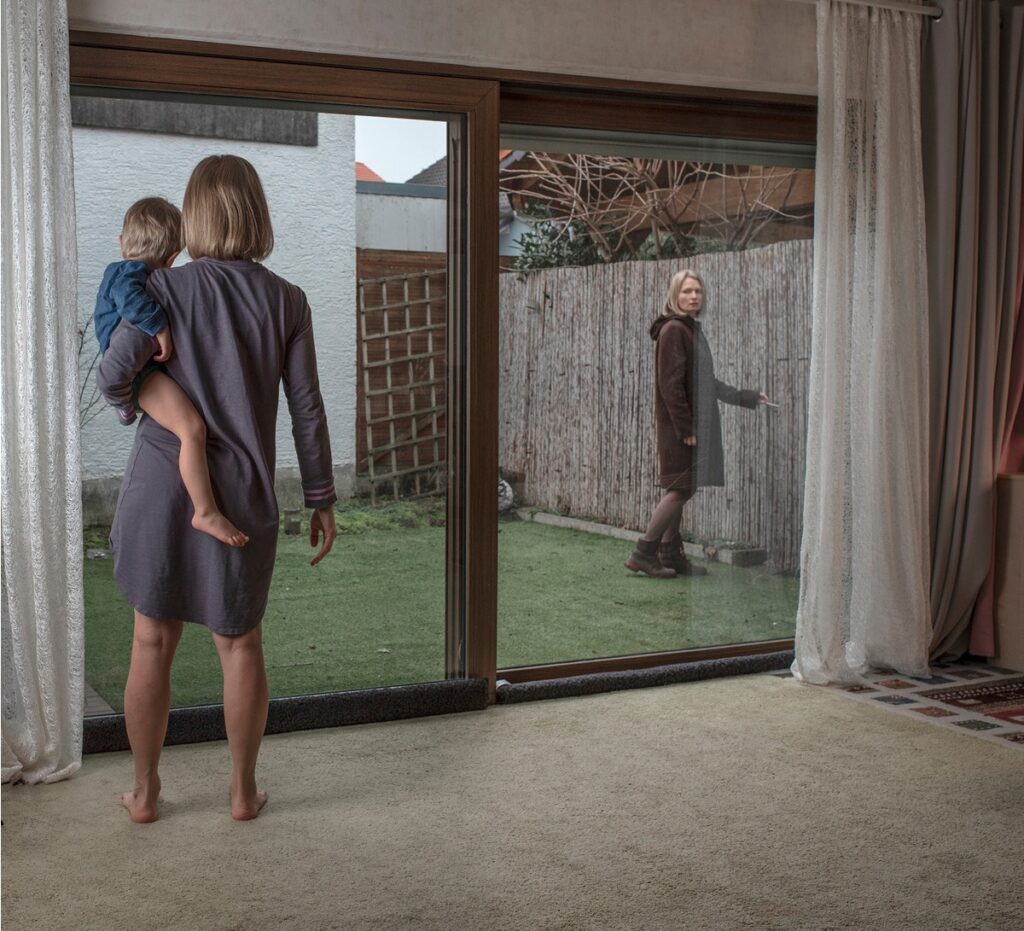
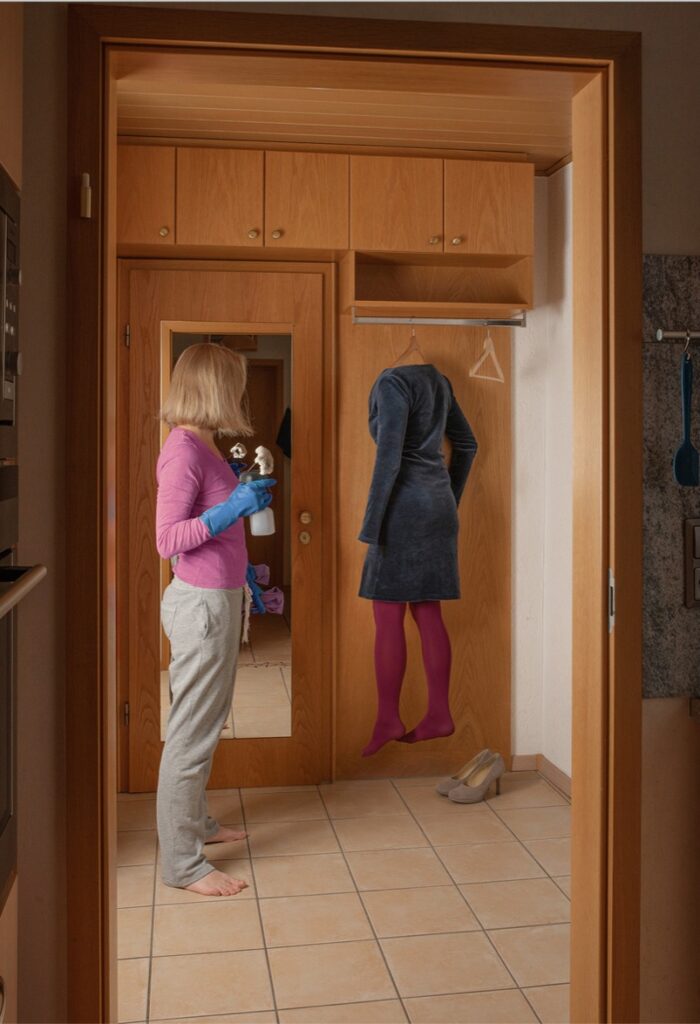
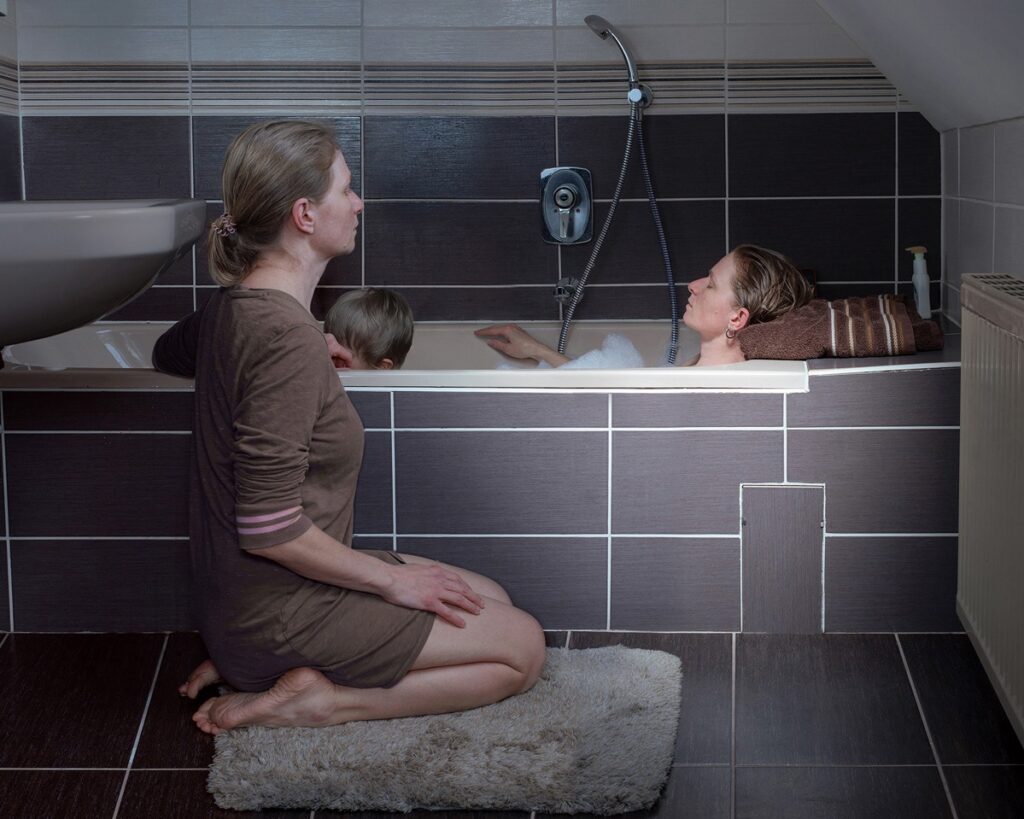
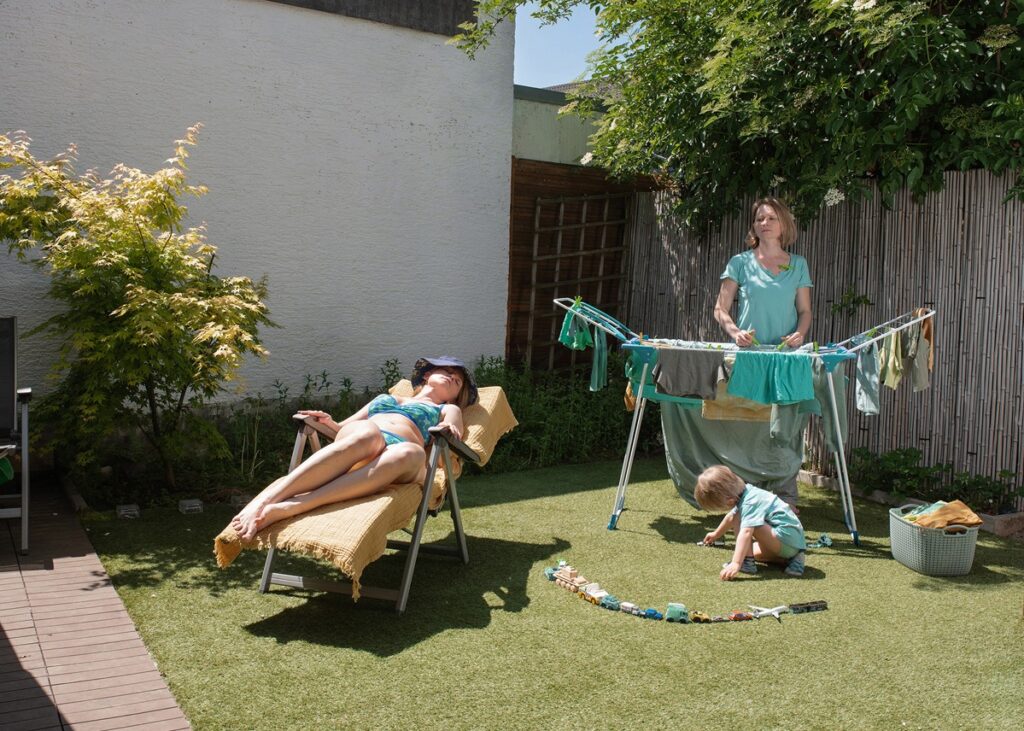
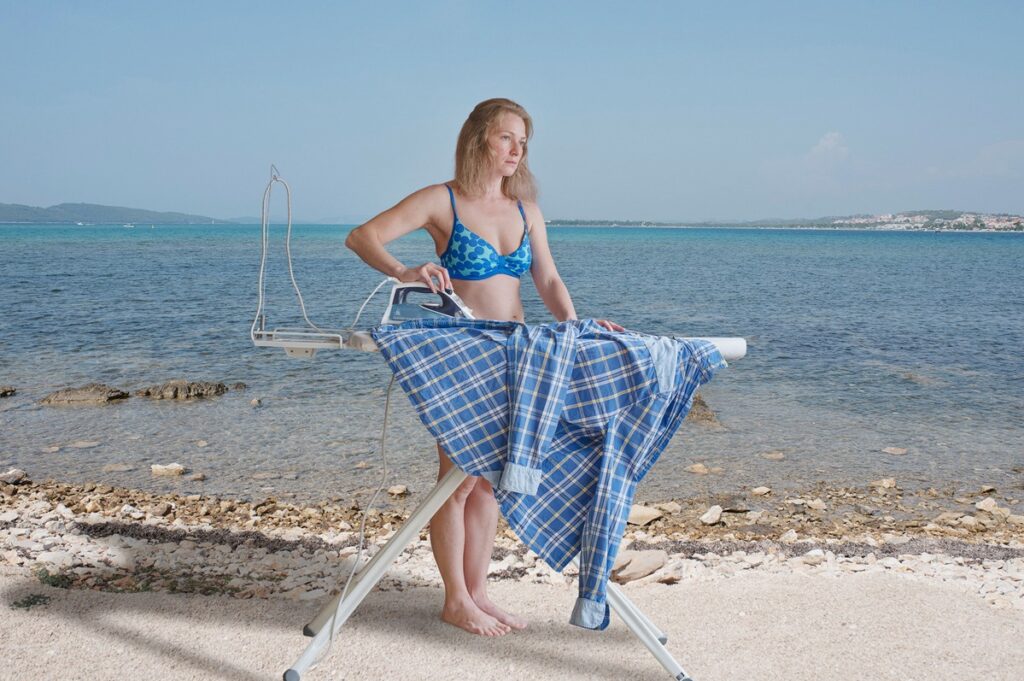
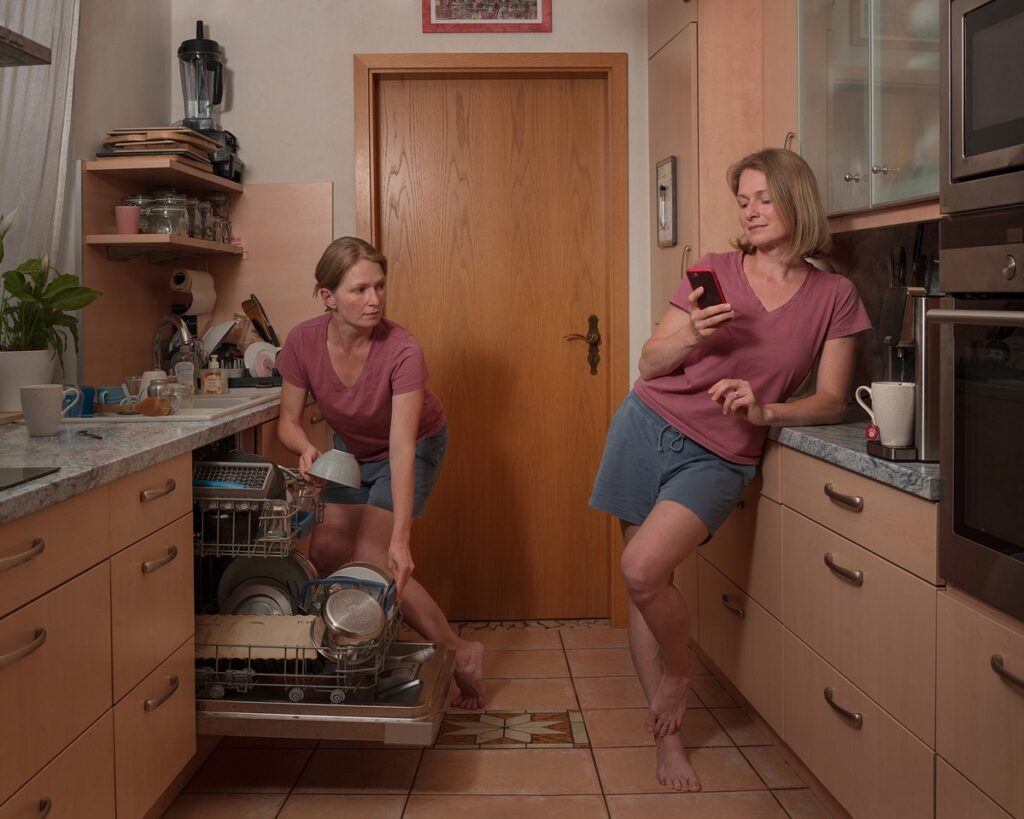
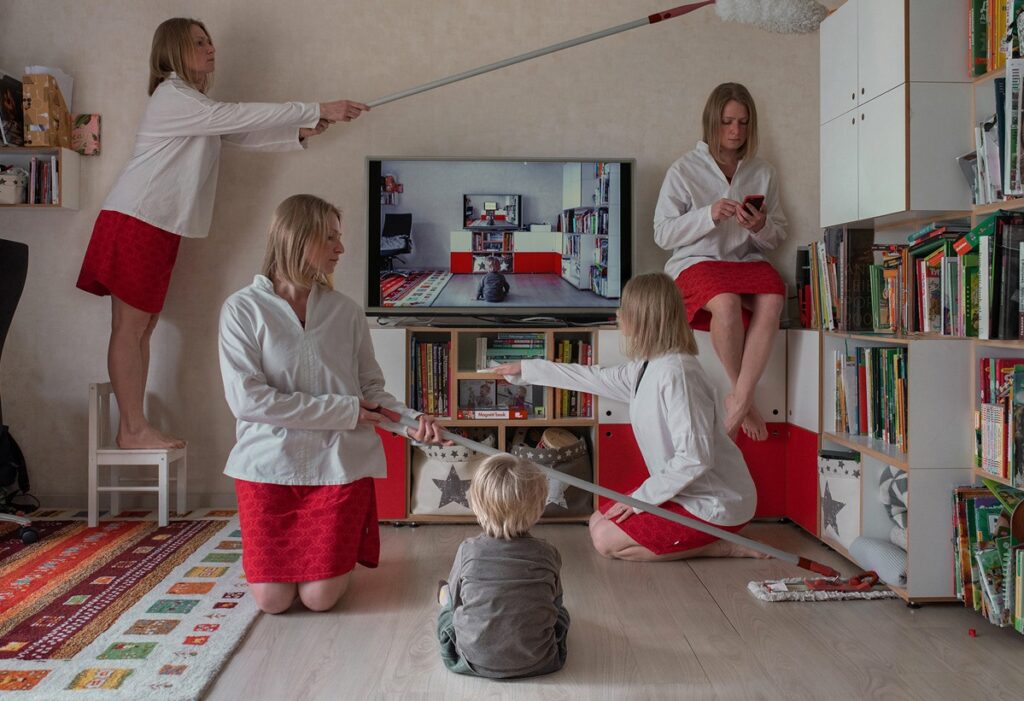
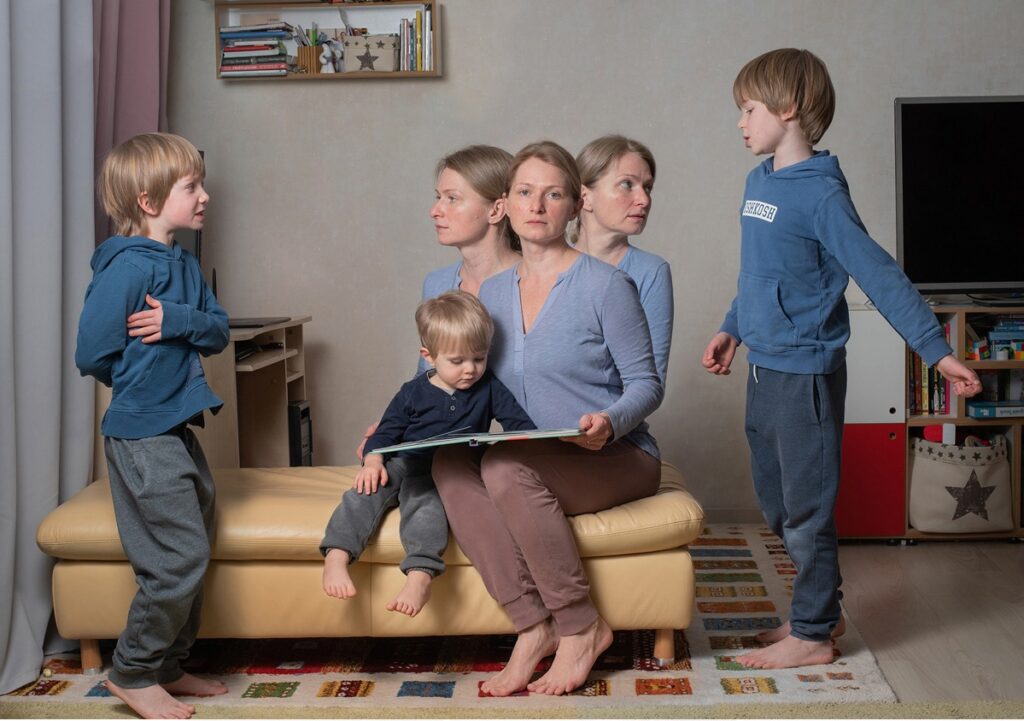
Rita Manganello è milanese di nascita, amante della fotografia e del cinema da quando ha memoria. Dopo gli studi classici e la Scuola di Giornalismo, ha lavorato in società multinazionali di primaria importanza nell’area della comunicazione e delle risorse umane, maturando un profilo professionale che le consente, oggi, di avere uno sguardo aperto alla contemporaneità. Giunta a fine carriera torna a dedicarsi alle passioni di un tempo fra cui la fotografia, il cinema, l’arte e la letteratura. Alterna l’attività di esplorazione fotografica a quella redazionale e si occupa di lettura dell’immagine per i colleghi fotografi.



















































